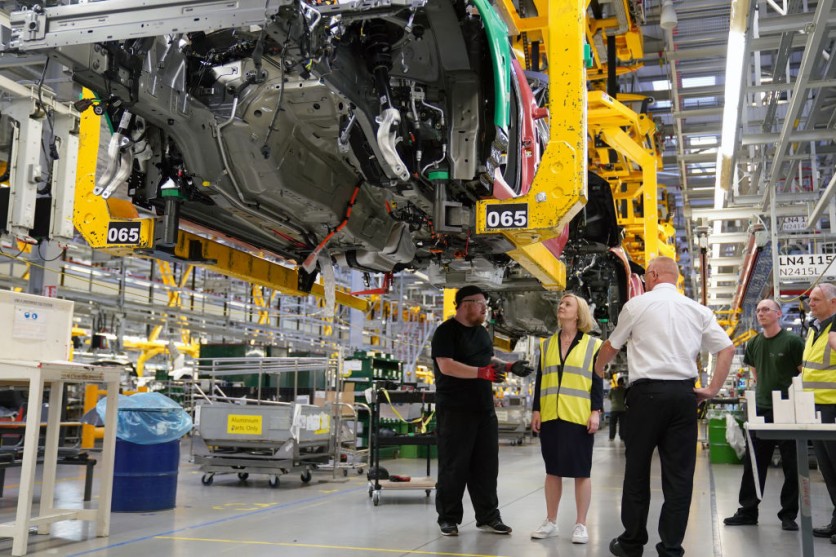Jaguar Land Rover has started converting its Halewood plant, as reported by Electrek. The move will support the company as it transitions to Electric Vehicles (EVs).

The Halewood Plant
Located on the outskirts of Liverpool, the Halewood plant was originally opened by Ford in 1963. It was used to produce many well-known Ford models. In 2000, Land Rover was sold to Ford, which reunited it with Jaguar. By 2008, Ford sold Land Rover and Jaguar to Tata Motors. Tata Motors then combined the two brands to establish Jaguar Land Rover (JLR). Since then, the Halewood facility has continued building JLR models ever since.
Now, the transformation of the Halewood facility is in preparation for Land Rover to introduce its first fully electric vehicle, according to Autocar UK. Prior to this, the company underwent several layoffs to fund the transition to EVs. Today, employees can now breathe with the plans already put in place.
The auto manufacturer will build EVs on their new Electrified Modular Architecture (EMA), which is fully-designed for EVs. To add to that, the EMA is designed to fit any battery. However, JLR's EMA platform is still undergoing engineering approval.
The body shop of the plant also needs an upgrade to increase the production capacity for their new models.
Jaguar is on a mission to be an all-electric brand by 2025, and Land Rover will release six EVs by 2030. We will also see the first electric Land Rover in 2024.
Also Read: Jaguar Land Rover To Test Fleet Of Autonomous Cars In UK By 2020
The Future of Electrification
With the further expansion of electro-mobility, the industry is shifting the way it makes and sells cars. In order to cut costs, manufacturers are making assembly lines that are modular. This will allow them to switch from producing internal combustion engines to EVs easily. It will also allow manufacturers to produce as many EVs as they want.
In addition to that, moving to EVs means car companies are rethinking their factories. They are now focusing on bringing down the size of factories to accommodate these new ideas. The factories are now becoming more compact and flexible. This change will not only make the process easier, but it will also streamline the process and encourage further innovation.
The future of the automotive industry looks incredibly bright, especially for electric vehicles. There are so many benefits to EVs and the industry has done an incredible job with them. With the shift to electric, the industry is becoming more efficient and forward-thinking.
The next decade will be a fascinating time to see the evolution of the industry and all its changes. As the future becomes clearer, so will our transportation.
Related Article: Jaguar Land Rover Launches New Startup, Expected To Develop Car-Sharing Service
This article is owned by Tech Times
Written by April Fowell




